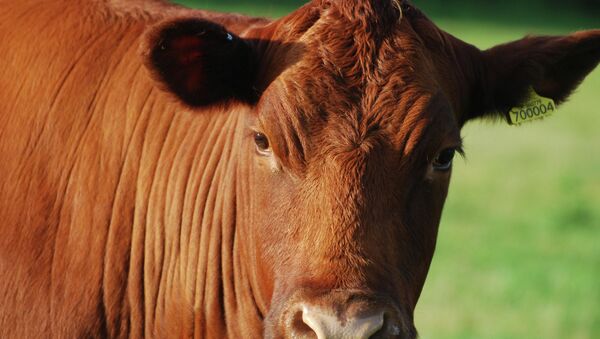The law was designed to prevent whistleblowers, employees, journalists and anyone else from exposing the conditions at agricultural facilities. Literally, every person who videotaped a case of animal abuse or other improper treatment of animals in agricultural factories could be sentenced to a term in prison.
“If you are an employee in one of these factory farms, these feed lots, these slaughter mills and you see something that you believe could affect public health and safety or is just wrong, because you are abusing animals or something like that, you videotape that, you get this videotape to the media, you can go to jail for that,” Brad Friedman from radio Sputnik's BradCast said while discussing the recent decision of the Idaho court judge to strike down the law.
According to legal analyst Ernest A. Canning, whom Friedman interviewed during his program, there is a clash between the right for privacy and the US Constitution’s First Amendment right. On the one hand, any agricultural facility can be considered as private property where attempts to videotape any activities can be viewed as a violation of the law. However, on the other hand, it is not strictly considered as a private property when it concerns public safety.
“From the point of view of public safety the public has the right to know,” Canning said, referring to the decision of the Federal District Court for Idaho.
‘Ag-gag’ refers to a class of anti-whistleblower laws for the agricultural industry, which are meant to ban any secret investigation of agricultural activities. The abolition of this law caused excitement among Idaho’s animal activists as it allows investigations into animal abuses to resume, which often take place in factory farms and slaughter houses.


